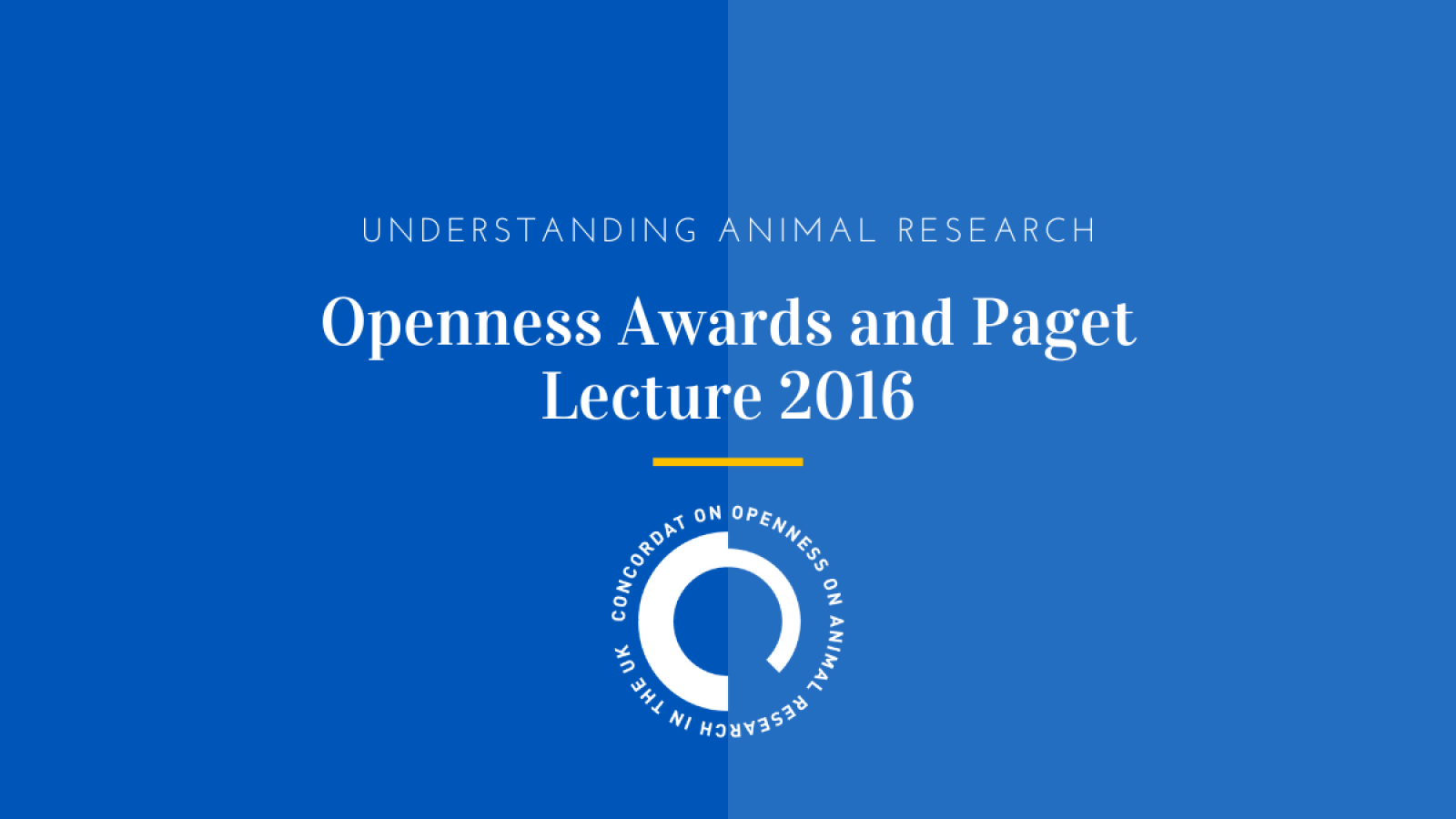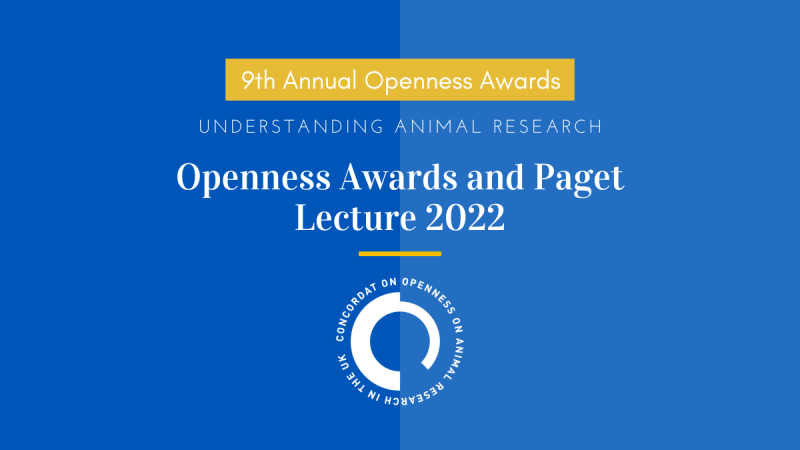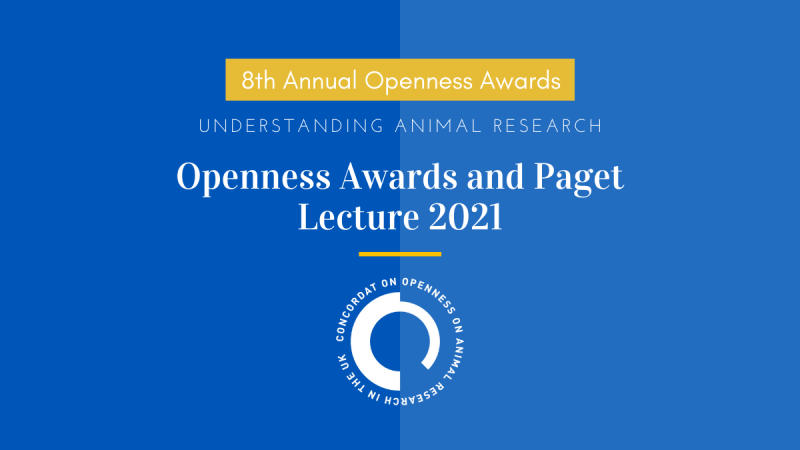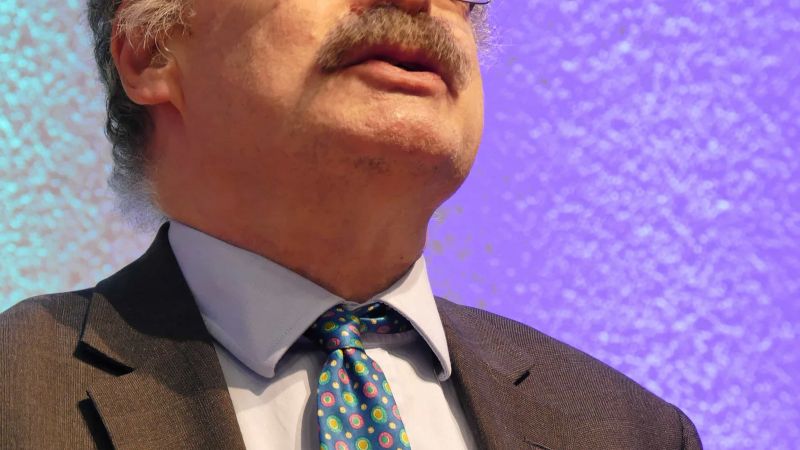Understanding Animal Research’s third Openness Awards and the 80th Stephen Paget memorial lecture took place this year on Monday, 5th December at the Royal College of Physicians in London.
Openness Awards
The awards celebrated four institutions and an individual who have helped further the way in which animal research is communicated in the United Kingdom.
The judging committee selected examples of best practice that they felt were appropriate to a range of audiences, and which had a component that was original or truly leading in terms of institutional practice.
The Internal or Sector Engagement Award was presented to the Institute of Animal Technology for the development of their Careers Pathway. The pathway provides a clear career structure and development for animal technologists from school leavers to managers. It is open about the need to improve training, and seeks to raise standards, empowering animal care staff.
The Public Engagement Activity Award was presented to the Cancer Research UK Manchester Institute for their museum event engaging public audiences with cancer research. The event was hands-on and interactive with a public audience that were not selected or pre-arranged. The extent of planning and consideration that the initiative must have involved was particularly impressive. Imperial College London was highly commended in this category for its podcast and social media activities, engaging audiences with the release of statistics on animal research.
The winner of the Media Engagement Award was the University of Leicester for its work with The Sun, which visited the University’s animal facilities to cover a story about how animals are used in obesity research. Leicester was professional and open in its approach, inviting the newspaper to see anything that they wanted to create a really good story. The tabloid papers represent a channel to a hard-to-reach and key audience for scientific research, and the resulting coverage was balanced and well-considered.
Many Concordat signatories now have web-pages detailing their animal research, and several had nominated their new web-pages for the Website Award. The University of Manchester was a clear winner. Information was accessible and appropriate to a wide range of audiences, but layered and easy to navigate. The material covered was extensive and of an excellent standard, and the infographic and Q&A sections are particularly impressive. Both the MRC Centre for Macaques website and the University of Edinburgh website were highly commended in this category. The Centre for Macaques provides accessible information about the breeding and use of primates in research, communicating effectively about a controversial area and exploring the balance of harms and benefits effectively. The University of Edinburgh has an excellent website which is engaging and easy to navigate with lots of information on the 3Rs and case studies showing the breadth of research carried out.
UAR’s Individual Award for Outstanding Contribution to Openness in Animal Researchwas presented to Andy Gay. There are few people in our sector who truly epitomise the spirit of openness about animal research, but Andy was encouraging journalists and others to come and see the reality of animal research many years before the Concordat existed. He personally suffered at the hands of animal rights extremists, but his conviction that openness and more communication are the only way to tackle misunderstanding meant that he continued to champion the cause when others were too afraid to do so.
The awards saw the announcement of a new recognition process for individual champions of openness, based on internal awards to be held within signatory organisations. Winners of these organisational awards will be eligible for nomination to future Openness awards in the Outstanding Individual category, and more information about how to develop awards for openness within organisations will be available to signatories in 2017.
The 80th Stephen Paget Memorial Lecture
The Stephen Paget Memorial Lecture is a scientific lecture to commemorate the life of Dr Stephen Paget (1855 – 1926), the founder of the Research Defence Society, a forerunner of Understanding Animal Research. He believed passionately that better science and understanding of physiology would lead to better medical treatments.
The Paget Lecture was first delivered in 1927 and has subsequently been presented by scientific luminaries including Sir Henry Dale (Nobel Prize, 1936), Sir Howard Florey (Nobel Prize, 1945) and Sir Peter Medawar (Nobel Prize, 1960).
The lecture, Animal Research – Then and Now, was presented by HM Government Chief Scientific Advisor Professor Sir Mark Walport. After a historic review of the emergence of legislation governing the use of animals in research Sir Mark challenged the scientific community to provide a more thoroughly researched evidence base to support animal use. While congratulating the excellent examples of Openness that had been awarded, he cautioned against dragooning unwilling scientists into communicating about their research.
Transcripts of the majority of the previous 79 lectures and films of the most recent two lectures can be seen on Animal Research Information here: http://www.animalresearch.info/en/medical-advances/articles-lectures/
Second annual Concordat on Openness Report
To coincide with the Openness Awards and Paget Lecture, UAR has published the second annual report on the Concordat on Openness on Animal Research in the UK. The report details how signatories to the Concordat have fulfilled their commitments to improve openness and transparency, summarising information provided by the signatory organisations at the end of the Concordat’s second year.
Last edited: 31 October 2022 14:19




